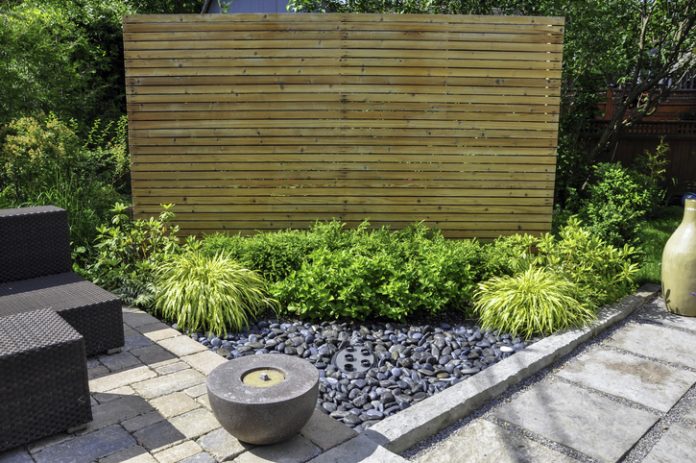
In today’s world, where environmental concerns are at the forefront of global conversations, it’s essential to adopt eco-friendly practices in every aspect of our lives. When it comes to our outdoor spaces, landscaping plays a significant role in reducing our ecological footprint. By embracing sustainable landscaping, we can create beautiful, functional, and environmentally responsible landscapes. In this expert guide, we will explore valuable tips from landscaping contractors on how to achieve an eco-friendly outdoor space that harmonizes with nature.
Table of Contents
1. Choose Native Plants
Native plants are adapted to the local climate and soil conditions, requiring minimal water and maintenance once established. Collaborate with knowledgeable landscaping contractors to select native plant species that will thrive in your region. Native plants also support local wildlife, providing essential food and shelter for birds, butterflies, and beneficial insects.
2. Xeriscaping for Water Efficiency
Xeriscaping is a water-efficient landscaping technique that minimizes water usage while maintaining a visually appealing landscape. Landscaping contractors well-versed in xeriscaping can design your outdoor space using drought-resistant plants, mulch, and water-saving irrigation systems. This approach not only conserves water but also reduces utility costs over time.
3. Compost and Mulch
Implementing a composting system and using mulch in your garden are excellent practices for sustainable landscaping. Compost enriches the soil with nutrients and enhances its water retention capacity, promoting healthy plant growth without the need for chemical fertilizers. Mulch helps suppress weeds, retains soil moisture, and regulates soil temperature, further reducing the need for excessive watering.
4. Permeable Hardscaping
Traditional hardscaping, such as concrete or asphalt, can contribute to stormwater runoff, leading to water pollution and soil erosion. Opt for permeable hardscaping materials like permeable pavers or gravel that allow water to infiltrate the ground naturally. Landscaping contractors experienced in permeable hardscaping can create stunning pathways, driveways, and patios while helping to manage stormwater effectively.
5. Rainwater Harvesting
Maximize water conservation by incorporating rainwater harvesting systems into your landscape design. Landscaping contractors can install rain barrels or underground cisterns to collect rainwater from your roof and gutters. This stored water can then be used for irrigation, reducing reliance on municipal water sources.
6. Use Sustainable Materials
When building structures or features in your outdoor space, opt for sustainable materials such as reclaimed wood, recycled plastic, or locally sourced stone. These materials have a lower environmental impact and contribute to a more eco-friendly landscape design.
7. Integrated Pest Management (IPM)
Avoid the indiscriminate use of chemical pesticides that can harm beneficial insects and wildlife. Instead, work with landscaping contractors who practice Integrated Pest Management (IPM). IPM focuses on preventive measures, biological controls, and targeted use of pesticides only when necessary to minimize environmental impact.
8. Energy-Efficient Outdoor Lighting
Illuminate your outdoor space responsibly by using energy-efficient outdoor lighting solutions. LED lights consume less energy and have a longer lifespan, making them an eco-friendly choice for your landscape. Consider installing motion sensors or timers to further reduce energy consumption.
9. Create Wildlife Habitats
Enhance biodiversity in your outdoor space by creating wildlife-friendly habitats. Landscaping contractors can design gardens with diverse plant species that attract pollinators and provide food and shelter for wildlife. Add bird feeders, birdhouses, and butterfly gardens to invite a variety of creatures into your eco-friendly oasis.
10. Embrace Sustainable Maintenance Practices
Maintaining an eco-friendly landscape requires ongoing effort. Work with landscaping contractors who prioritize sustainable maintenance practices, such as hand weeding instead of herbicides and regular inspection and adjustment of irrigation systems to prevent water waste.
In conclusion, sustainable landscaping is not only about creating a visually appealing outdoor space but also about protecting and preserving the environment. By collaborating with knowledgeable landscaping contractors and implementing eco-friendly practices, you can significantly reduce your environmental impact while enjoying the beauty and serenity of an eco-conscious landscape. Let’s join hands in creating a greener, healthier world, one eco-friendly outdoor space at a time. By taking these steps towards sustainability, you’re not just enhancing your property, but also inspiring others to embrace eco-friendly practices and contribute to a more sustainable future for generations to come.
Note to readers: Transform your outdoor space into an eco-friendly haven with these expert tips from landscaping contractors. Embrace sustainability and make a positive impact on the environment while enhancing the beauty of your property.















